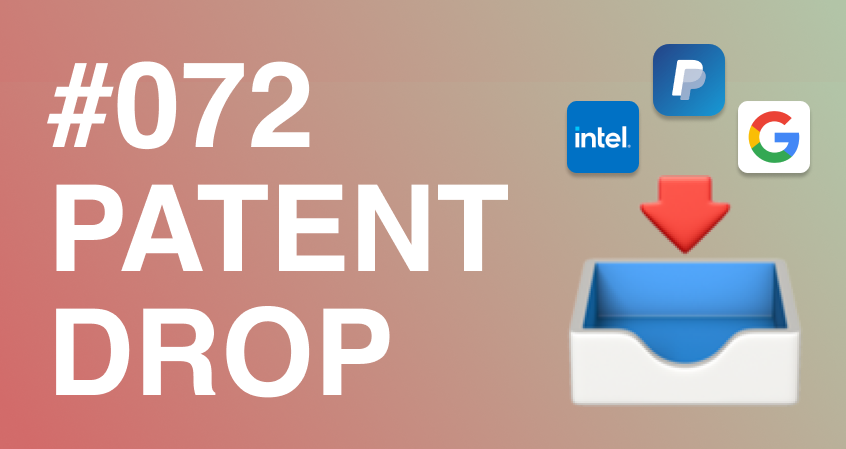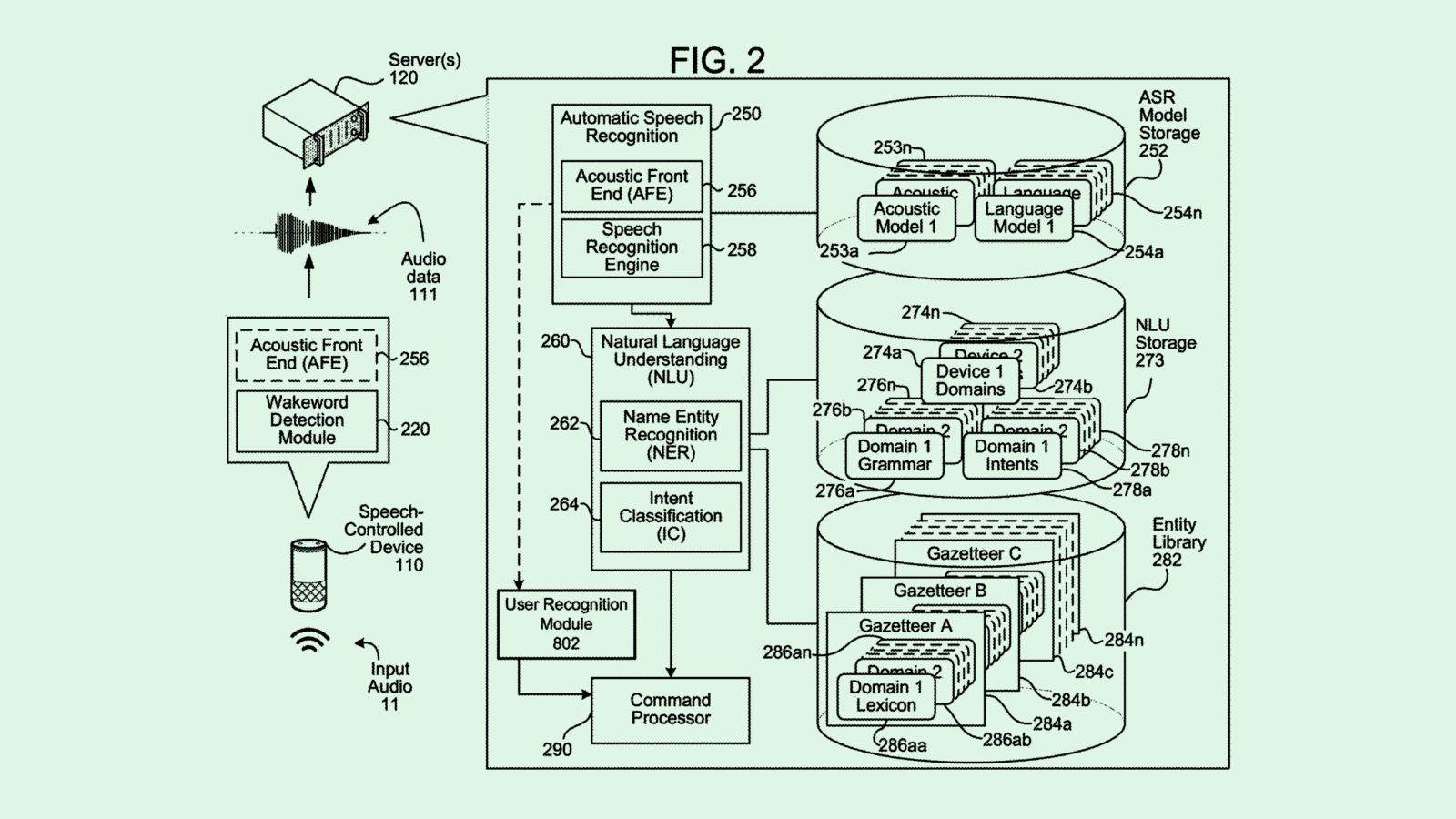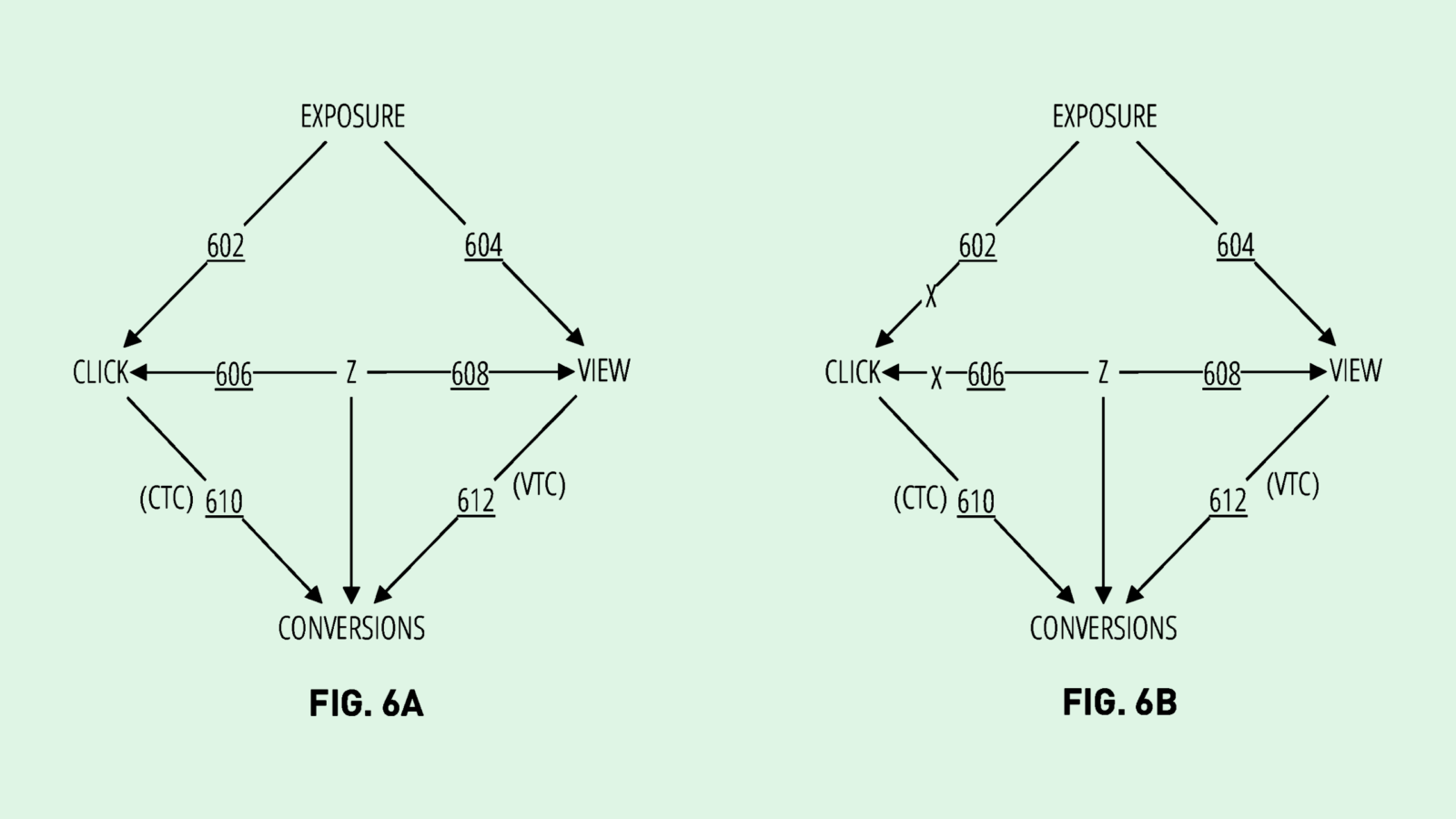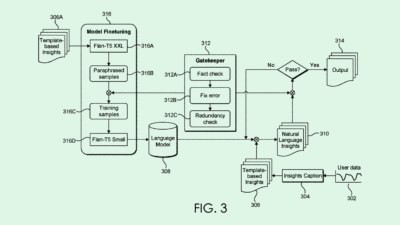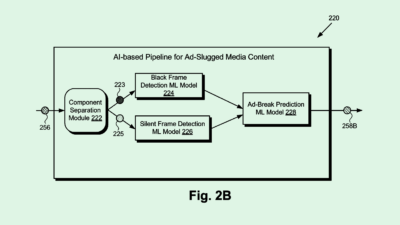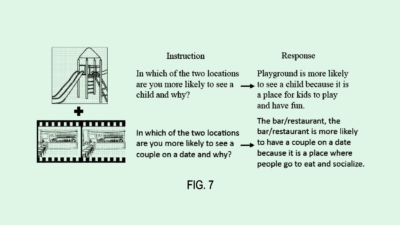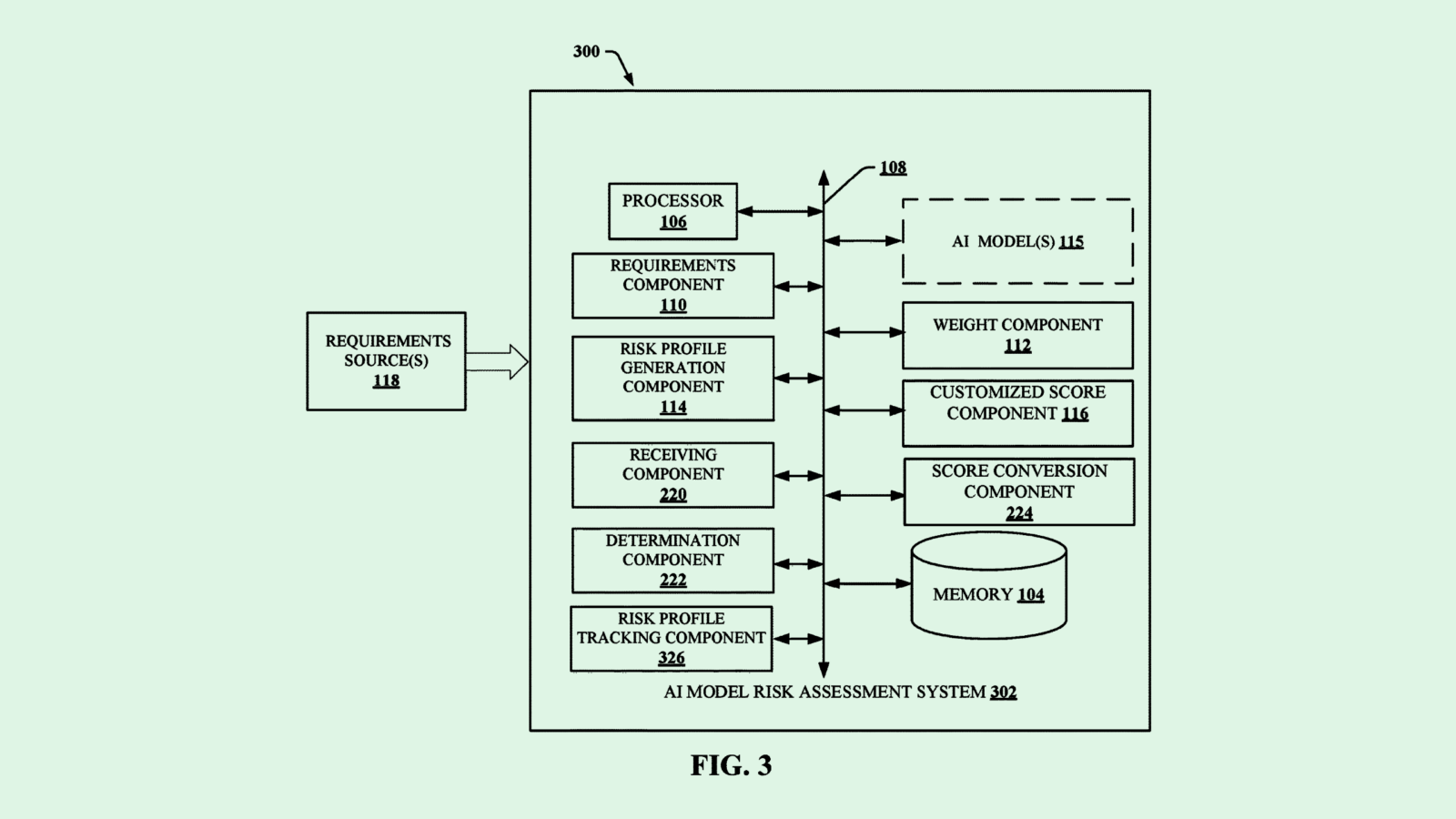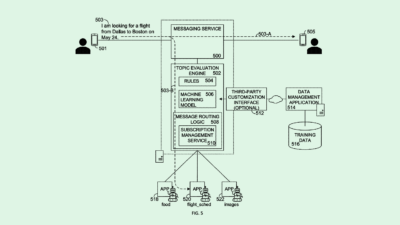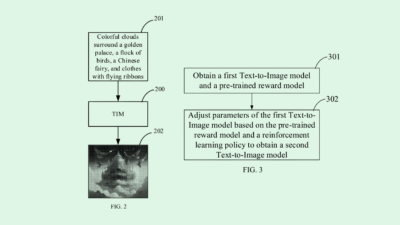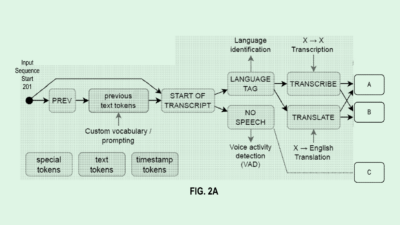Sign up to uncover the latest in emerging technology.
Plus: Intel’s automated manager; Apple and Google’s homestyle metaverse
Happy Monday and welcome to Patent Drop!
Today, we’re diving into PayPal’s idea to sic AI on fraudsters, Intel’s tech to become your entire company’s automated planner, and Apple and Google’s different plans to get to know the inside of your house.
But first, a word from our sponsor, the staffing pros at Oceans. They’re in the business of helping you grow your team (and your business) with experienced global talent at 50-80% less than US-based candidates. Marketing, sales, finance… Oceans’ crème de la crème talent have 5-10 years working experience with global companies like Deloitte, PWC, Sysco, and more. Schedule a call with an Oceans expert today and grow your team for less.
Alrighty folks, let’s take a look.
#1. PayPal’s hack spotter
PayPal takes fraud so seriously that it’s turning AI into Sherlock Holmes.
The company filed a patent application for tech that detects fraud using machine learning. According to the filing, this system will rely on an AI “designed and trained to recognize the patterns in fraudulent attempts” to decide whether or not to allow or deny a user’s request, such as access to an account or making a payment. The system is trained on previous user activity, taking into account things like who they commonly make transactions with, browsers or devices used, and times of access.
For example, if a PayPal account for a person based in San Francisco suddenly makes a payment to a user in London at 4 a.m. PST, despite never having sent funds to anyone outside of the U.S. previously, the AI would flag that as suspicious, making the user verify in some way that the transaction was actually made by them.
“Security is a universal problem in computer systems,” PayPal said in its file. “Malicious actors may, for example, fraudulently use a legitimate user’s compromised account to access the computer system and engage in transactions. A compromised account may be used to access secure electronic resources, transfer money, or make purchases.”
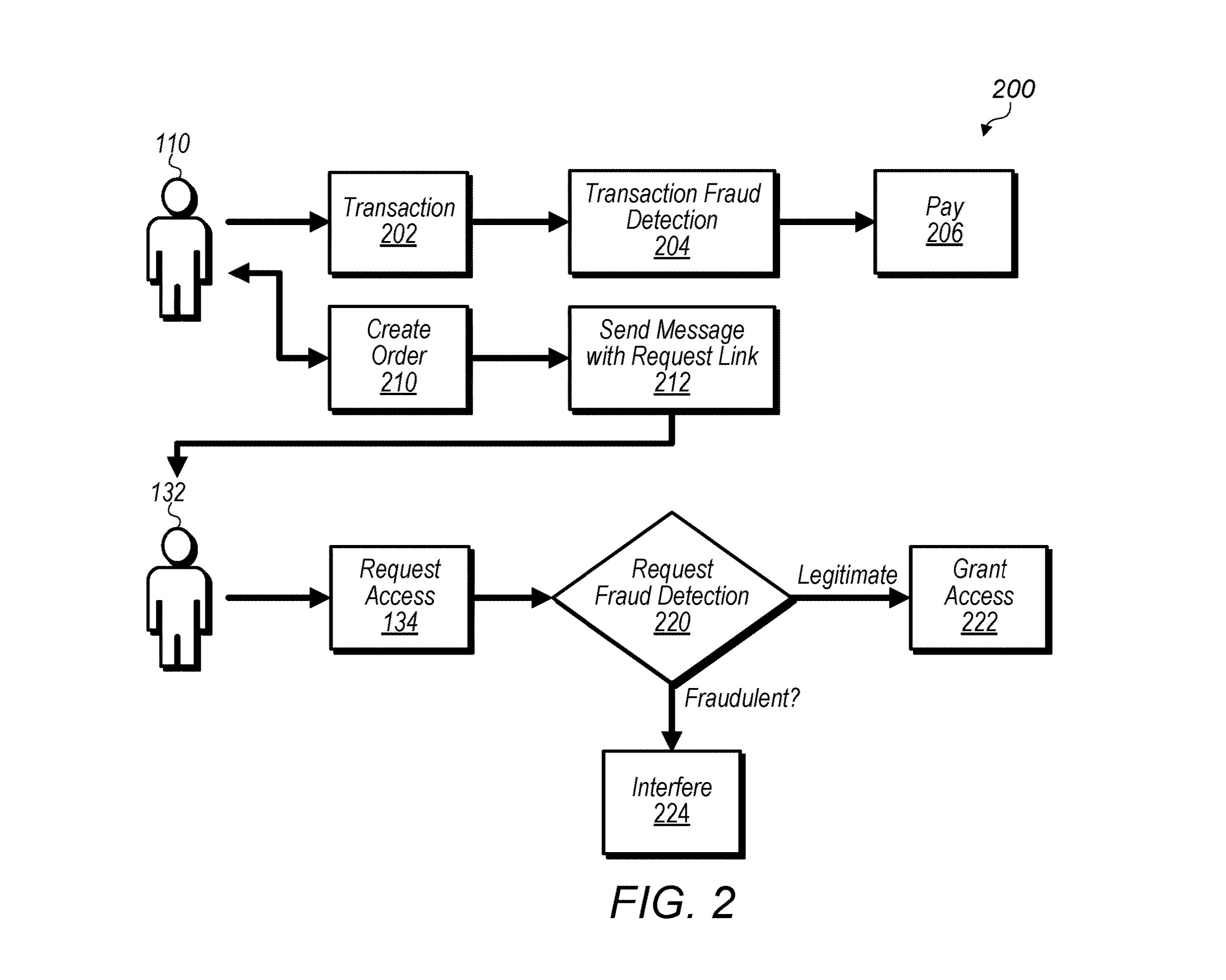
PayPal’s patent seeks to limit payments fraud and account takeover attacks; two common issues among fintechs, especially peer-to-peer payment apps. According to the Digital Trust and Safety Index report by fraud detection platform Sift, account takeover fraud increased 71% for fintech accounts between 2021 and 2022, and 79% in crypto-related accounts.
But AI can go a long way in making platforms safer, said Mary Writz, SVP of product at Sift. An AI-based algorithm can take in tons of information about a customer’s journey, such as time of login, location, and payments made, and more quickly detect whether or not certain activity is fraud. And of course, because it’s AI, fraud detection will only get more and more precise over time.
For a company like PayPal, implementing AI for fraud is a perfect fit. Given that it handles tens of billions of transactions a year, using AI is the best way to quickly and accurately detect fraud among the thousands of payments it sees every minute. Plus, it has plenty of data to train its AI on, said Writz, meaning it won’t take long for its system to get good at tracking down fraudsters.
“The only way you can operate at scale and latency needed is to move a lot of the advanced
algorithms to AI and machine learning,” said Writz. “More modern providers are moving to AI-driven approaches in cybersecurity and in online fraud detection.”
And if an incident does slip through the cracks, PayPal’s got an AI for that, too: The company wants to patent a deep learning model that can label and handle customer complaints. The future truly is now.
#2. Intel’s planning multitool
Intel might make your manager obsolete… you’re welcome.
The company is seeking to patent tech for the “management of collaborative teams,” The system, which Intel called a “managing module,” is essentially an all-in-one tool for managing organizations and workflow.
In the filing, Intel laid out several functions of this module: It can automatically assign team members to a project by reviewing documents they’ve collaborated on and any teams each individual member may be associated with; adjust permissions to documents based on those team members; assigning team members to tasks based on their skills and expertise; and make changes to documents based on messages to one another.
“Collaborative teams may create a logistical challenge for each worker on the team,” Intel said in its application. “It may be difficult for a worker to keep track of the various teams of which the worker may be a member … Additionally, it may be difficult to ensure that each worker is working from the most up-to-date content.”
One thing to note: Intel mentioned that the module could integrate with third-party applications, specifically bringing up the Microsoft Office suite as an example.
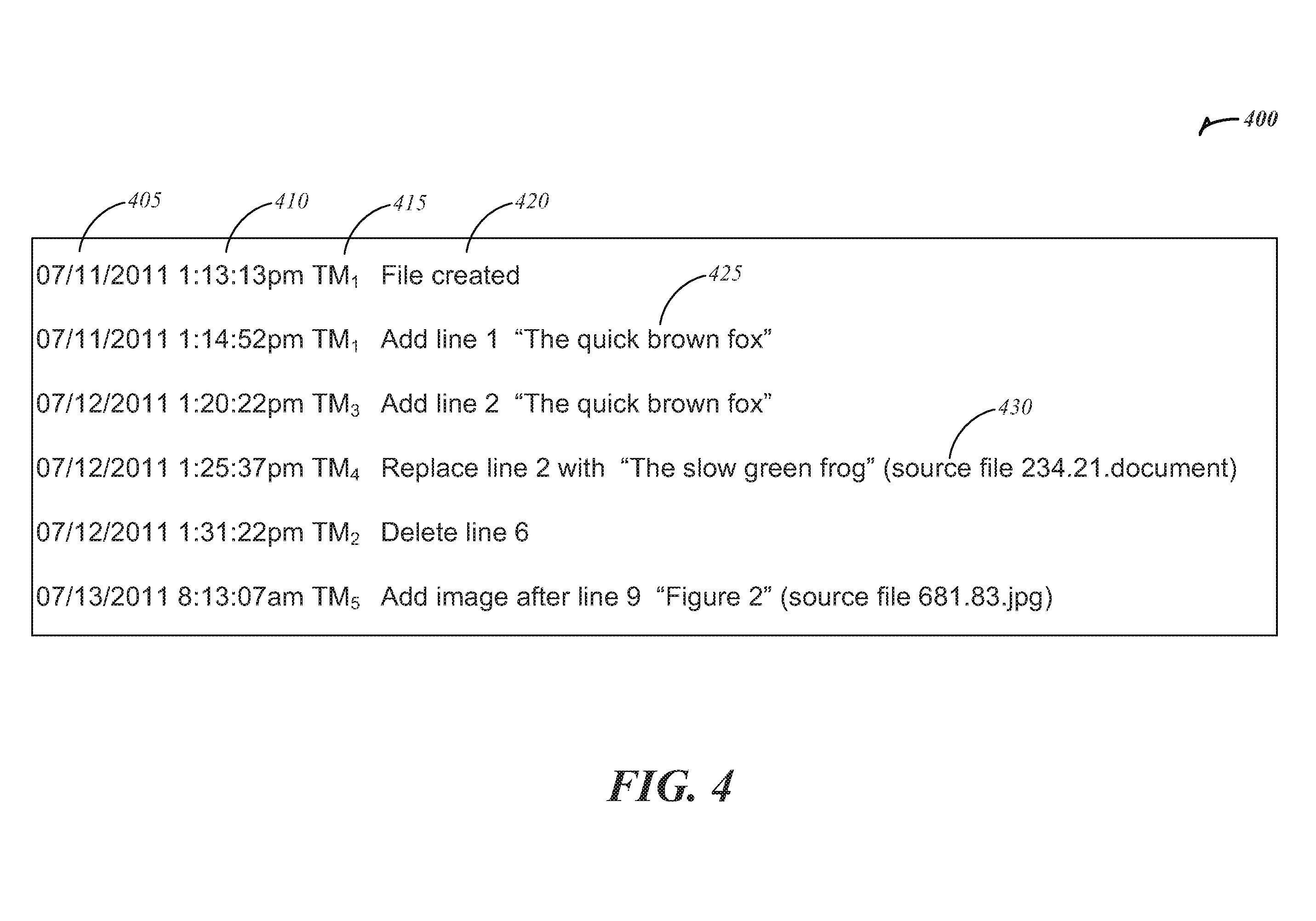
Intel’s tech is just another example of how automation is making its way into the workplace. As we talked about in Patent Drop last week, we already see automation starting to take hold of the HR and recruiting process. And while workflow and document management tools aren’t anything novel, tech like what Intel lays out takes it a step further than what’s on the market today.
Intel’s tech also solves a problem that has long plagued workplaces: Getting the right people on the right tasks, said Drew Dillon, product leadership consultant and CEO of community automation startup Burb. Finding the people on your team with the right expertise to take on certain projects and getting them the most up-to-date information to do so can often prove to be a frustrating task, he said.
The problem spans industries and organizations of all sizes, Dillon added, from startups to the U.S. government. He gave the example of the transfer of classified information in the military: “Despite the actual classification of the information, how does one, if they’re a troop on the ground in Afghanistan, get a piece of intel back to a beat cop in New York if it’s relevant to helping prevent an incident? it’s a really old challenge that Intel is getting at here.”
While you might wonder why Intel is researching it, the company has had partnerships with Microsoft practically since the dawn of tech, ranging from cloud services to DARPA contracts. Though the companies’ famous “Wintel” alliance on personal computing products frayed more than five years back, their interests are seemingly still aligned – at least in some areas.
So keep an eye out: a robot task manager might show up in your Teams chat sooner or later.
SPONSORED BY OCEANS
Expand Your Headcount, Shrink Your Payroll
When we first jumped into the newsletter game, we ran lean to keep costs down. But soon we learned that until we expanded our team, we would never grow.
If only we knew about Oceans back then.
Used by founders and corporations alike, Oceans surveys your needs and staffs you with top-shelf executive assistants, sales, and finance professionals — all for 50-80% cheaper than U.S.-based candidates.
Oceans maintains a robust pool of seasoned talent:
Backgrounds in global companies like HSBC, Deloitte, PWC, and The World Bank
Candidates carry 5-10 years experience in various operational roles
Marketing, sales, accounting, you name it
To put simply, you could onboard an Executive Assistant with 7+ years experience working at The World Bank in ops and marketing for roughly $3,000/month.
Schedule a call with Oceans today and join the likes of White Star Capital and Philadelphia Eagles’ Ndamukong Suh. Dive in here.
#3. Your (virtual) home away from home
Both Google and Apple filed patent applications for tech that learns the layout of your home so you’re not falling over your couch with that VR headset on.
Let’s start with Google. The company is seeking to patent tech for creating “three-dimensional maps of an indoor space.” This tech works by using depth sensors on your mobile device’s camera to “scan” the desired areas in your home and “generate realistic virtual rooms, which a user can interact with in an immersive and realistic experience.” Google also mentioned that this tech has AR applications, such as helping it more easily place virtual objects in a real-world environment.
“Scanning the indoor space successfully has multiple requirements and sometimes these requirements are beyond the control of a user,” Google said in its filing. “If all of the requirements are not met, a poor scan may result, and the corresponding 3D map may be incomplete and/or distorted. This is especially true when scanning a large indoor space with multiple areas.”
And in true Big Tech fashion, Apple is working on practically the same thing. The company filed a patent for “floor plan generation based on room scanning.” Similar to Google’s patent, this system would take in-depth sensor data captured by a user walking around the room and scanning their surroundings to create a 3D replica of your home that can be transposed into an extended reality environment, like VR or AR.
So why would anyone want a VR or AR version of their home, when they can just take off their headset and see the real thing? For one, virtual floor plans can be used for designing and remodeling a space, a use case that Apple points out in its filing.
Google, meanwhile, highlights that these virtual depictions can offer the “immersive and realistic” experience of a “virtual tour” for a guest that might not be able to see your house in person, thus making good on the promise that many tech firms have made about the metaverse’s potential for increased human connection.
But one use case neither company explored was the potential for them to use tech to be used to sell you things. Digital advertising is a massive part of Google’s business, and seemingly a growing part of Apple’s. What’s stopping Google from using this to allow advertisers to suggest the perfect décor for your living room in VR? Similarly, why wouldn’t Apple partner with e-commerce companies for AR home shopping experiences? Apple and Google are businesses at the end of the day, so they likely aren’t investing in tech like this without the hope of a return on it.
It’s no secret that the metaverse is and will continue to be a commercial experience as extended reality tech continues developing. If these patents are any indication, Apple and Google might be bringing the commercial into your home.
Extra Drops
Here are a few other cool ones.
Alibaba is going where just about every tech company has gone before. The e-commerce company is working on patenting a “sound detection method” for its smart speaker which can tell the difference between multiple people talking at once – because no other tech firm has thought of that, of course.
Apple wants to set the mood in your headphones. The firm is seeking to patent tech which controls the volume of your headphones based on “attitude data,” or movement of your facial muscles and rotation of your head.
Snap wants to make you crack a smile. The social media company wants to patent AR tech for “interactive fashion” that changes based on your facial expression.
What else is new?
If you’ve opened Twitter at all in the past few days, you’re most likely aware of the fact that the tech community is in utter chaos mode following the collapse of Silicon Valley Bank last week. Here are some of the most recent updates.
U.S. regulators said they’d protect all depositors with Silicon Valley Bank, using FDIC insurance funds to make the bank’s clients whole. HBSC bought SVB UK to secure the funds of British startups.
Dominos started to fall over the weekend: Regulators shut down Signature Bank in New York as it neared collapse, and other regional bank stocks have been paused for trading.
President Joe Biden said the cost of the bank failures wouldn’t fall onto taxpayers, and emphasized that the U.S. banking system remains secure. He also called to strengthen banking regulations to hold banks accountable.
Grab some shades, ‘cause thanks to GoSun, the future of portable, solar-powered outdoor gear has never been brighter. From solar coolers, water purifiers and power generators, to trailers and complete power systems, GoSun has created an entire lineup of lightweight, off-the-grid products. With $5.7 million in global sales in 2021 and NGO partners like the American Red Cross, GoSun solutions are critical to the $570 billion outdoor and disaster relief industries. Investors, ready for some sun? Check out this red hot opportunity here.*
*Partner
Have any comments, tips or suggestions? Drop us a line! Email at admin@patentdrop.xyz or shoot us a DM on Twitter @patentdrop.
*Disclaimer: The sponsored content in this newsletter was written and/or published as a collaboration between The Daily Upside’s in-house sponsored content team and a financial partner of The Daily Upside. Although the piece is not and should not be construed as editorial content, the sponsored content team works to ensure that any and all information contained within is true and accurate to the best of their knowledge and research. The Daily Upside may receive monetary compensation from the issuer, or its agency, for publicizing the offering of the issuer’s securities. This content is for informational purposes only and is not intended to be investing advice. This is a paid ad. Please see 17(b) disclosure linked in the campaign page for more information.
